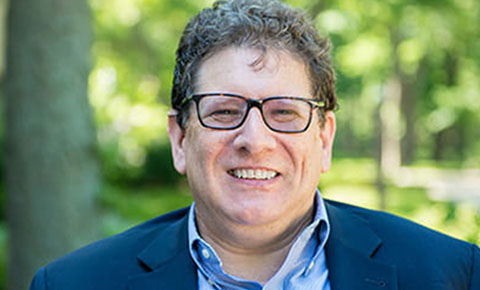Faculty Member Wins Tools Competition

Northwestern University education researcher David Uttal and colleagues received a $100,000 award in the annual Tools Competition to develop an interactive platform that helps students and teachers learn spatial and math skills by using intricate and familiar patterns found in the natural world.
In addition to Uttal, the team included Herb Ginsburg, a distinguished professor from Teacher's College, Columbia University. They were joined by Alex Wolf and Vijal Parikh of na2ure, as well as Trina Clemans, director of economic and entrepreneurship education at Collegiate School, a college prep school based in Richmond, Virginia. The late Daniel Bartels, who had been director of STEAM and robotics program Leader at Collegiate, also lent his expertise.
The project is based on na2ure’s Pattern Alphabet, or patternABC program, a comprehensive introduction to spatial reasoning for young children. Created by Wolf of na2ure, the spatial alphabet is made up of 32 icons that encode how nature grows, builds, and moves across various dimensions and scales. One icon, for example, might look like a spiral to represent a shell or the movement of a whirlpool.
Spatial skills, which involve visualizing, transforming, and manipulating space and objects, play a critically important role in children’s learning and development. For example, we now know that spatial skills can facilitate mathematics learning, said Uttal, who studies how to improve children’s spatial skills.
 For the Tools Competition, the team explored whether patternABCcould address the gap by familiarizing children with common patterns in the world. Their early research findings suggest that activities using the system might bolster spatial skills by highlighting spatial patterns.
For the Tools Competition, the team explored whether patternABCcould address the gap by familiarizing children with common patterns in the world. Their early research findings suggest that activities using the system might bolster spatial skills by highlighting spatial patterns.
The Tools Competition, in its third year, generated more than 1,000 initial proposals from 73 countries around the world. It’s designed to spark new ideas in ed tech innovation, improve education, and highlight the field of learning engineering, a discipline that combined big data, partnerships between edtech companies, researchers, and educators.
“Creating a pABC based curriculum and testing its application in formal and informal educational settings holds great promise for inclusivity in education and personalized spatial training,” said Uttal, director of the Spatial Intelligence Learning Center lab at Northwestern, which partners with na2ure.
Overall, the competition had 32 winning teams, a diverse mix of entrepreneurs, learning scientists, educators, and researchers from around the world. Their winning proposals addressed a wide range of learning goals, from reskilling and upskilling adult workers to accelerating learning among PreK-12 students, creating transformative assessments, and developing tools to support teachers and accelerate the learning science research process.
Uttal has been collaborating with Wolf and Parikh since 2018, when the first patternABC pilot was done for UNICEF. In 2022 Uttal won the International Mind, Brain, and Education Society’s research translation award for his work strengthening the links between spatial intelligence research and practice in both schools and informal contexts such as museums and community centers.